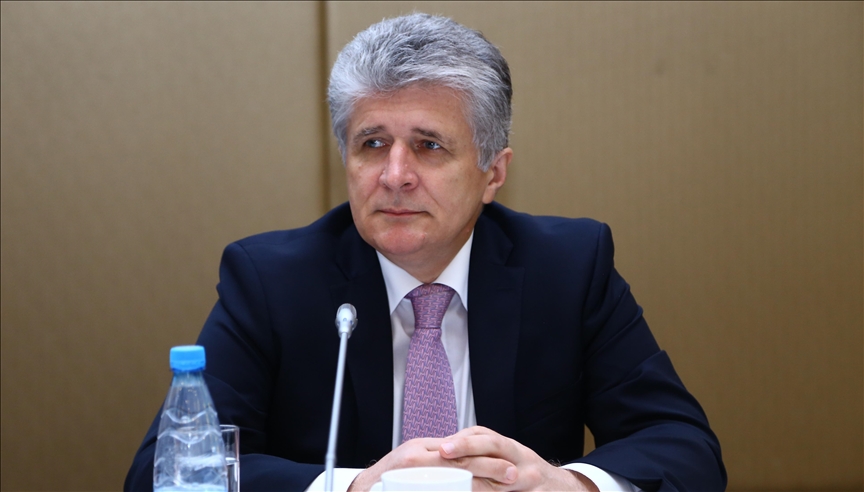Minsk agreements show ceasefire deals 'do not ensure durable end to violence': UN official
Miroslav Jenca says 'genuine political will' and 'understanding' of conflict's complexities are crucial to preventing further escalation
 ( Photo by Resul Rehimov - Anadolu Ajansı )
( Photo by Resul Rehimov - Anadolu Ajansı )
HAMILTON, Canada
A senior UN official on Monday warned that ceasefires and agreements alone are not enough to prevent conflict from escalating, emphasizing that "genuine political will" is needed for preventing further escalation.
"In one week, we will mark three tragic years since Russia's full scale invasion of Ukraine launched in violation of the UN Charter and international law," said Miroslav Jenca, UN assistant secretary-general for Europe, Central Asia and the Americas, at a Security Council meeting on the adoption of the Minsk II agreement.
Describing Russia's war on Ukraine as "an inexcusable escalation" of a conflict that began in 2014 with Russia's annexation of Crimea and the outbreak of fighting in eastern Ukraine, Jenca said: "The global impact of the war continues to be felt far beyond Ukraine."
The Minsk agreements -- international deals supported by Russia, France, and Germany, aimed at ending the conflict that began in 2014. The agreements, designed to end armed conflict in eastern Ukraine, were signed in Minsk in 2014 and 2015. However, their implementation stalled, with both sides accusing each other of violations.
"The Minsk agreements have taught us that agreeing on the ceasefire or the signing of an agreement alone do not ensure a durable end to the violence," Jenca said.
He stressed that "genuine political will" and an understanding of the conflict's complexities are crucial to preventing further escalation "for Ukraine and for the region."
Jenca further emphasized that the UN remains committed to Ukraine's sovereignty and territorial integrity, reiterating that any peaceful settlement must align with international law and the UN Charter.
English musician and Pink Floyd co-founder Roger Waters also addressed the Council virtually, appearing with a Palestinian flag pinned to his jacket.
He recalled Ukrainian President Volodymyr Zelenskyy's 2019 campaign pledge to implement Minsk II, and said: "Did he implement Minsk II? No. Then what? Well, then things got worse."
He criticized the lack of diplomatic engagement prior to the escalation and argued that war serves the interests of the wealthy.
"War is a racket. It always has been. It is possibly the oldest, easily the most profitable, surely the most vicious, and it is the only racket that is international in scope. Who profits from the racket? Rich people do. Oligarchs do. Since the Second World War, the racket has been our constant companion—Korea, Vietnam, Kosovo, Iraq, Afghanistan, Libya, Syria, Palestine," he said.
"Well, Palestine isn’t really a war, is it? Don't get me started," he added.
Anadolu Agency website contains only a portion of the news stories offered to subscribers in the AA News Broadcasting System (HAS), and in summarized form. Please contact us for subscription options.







